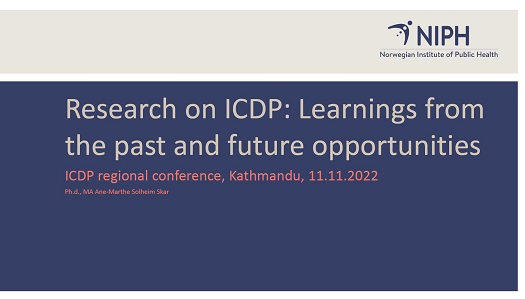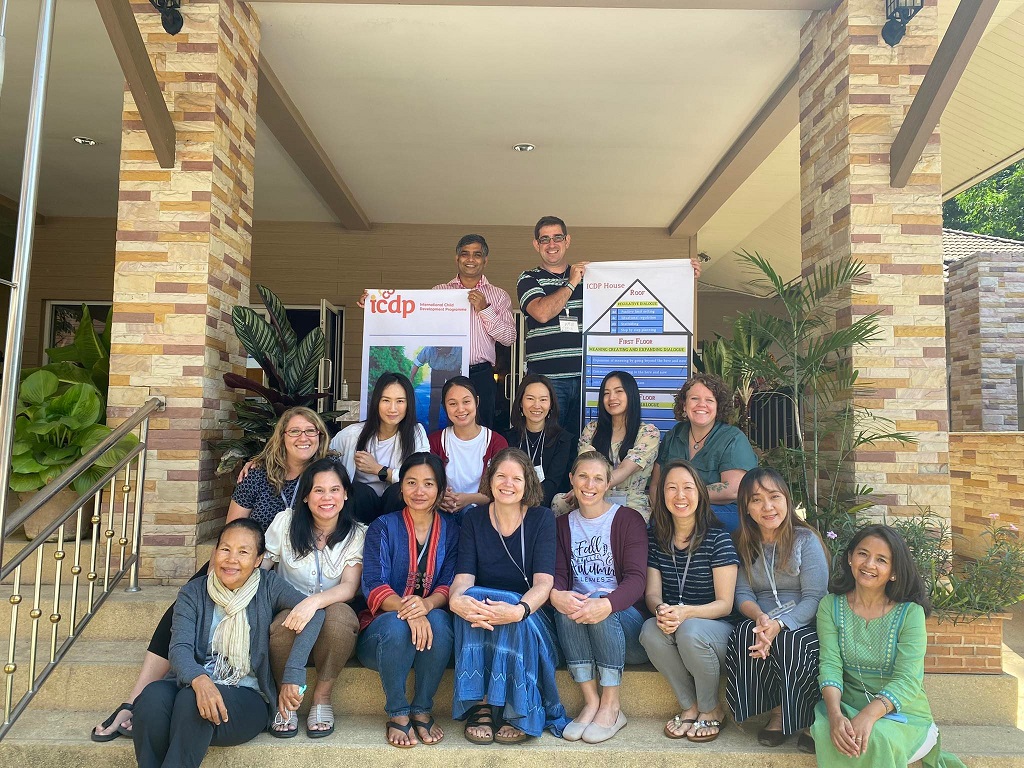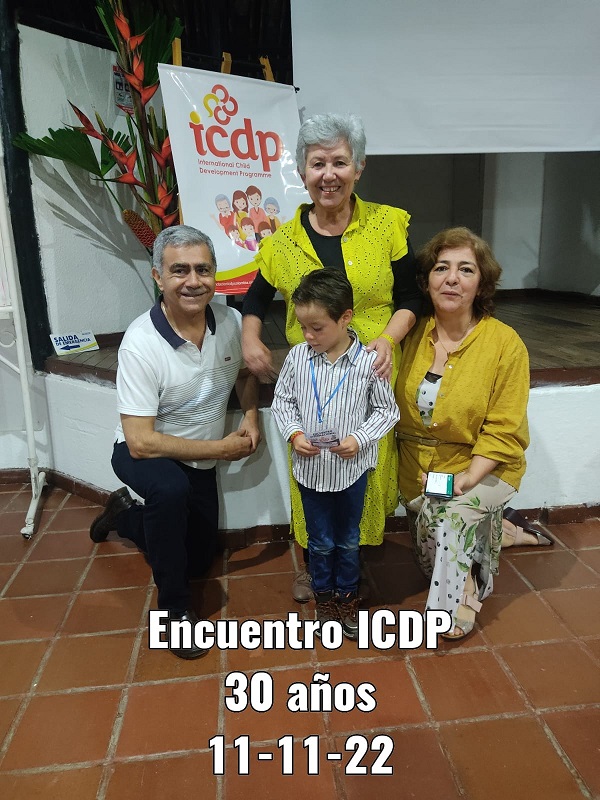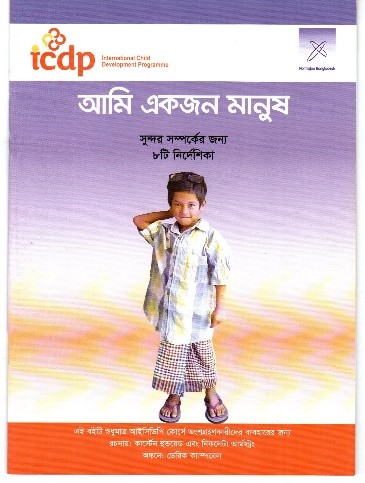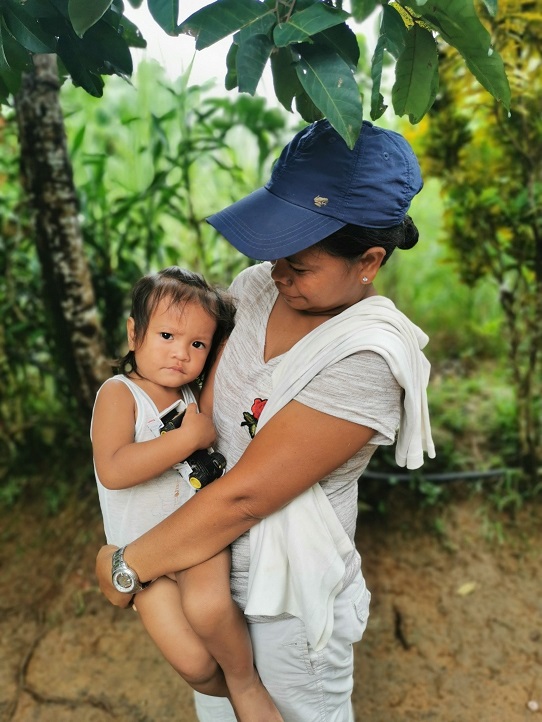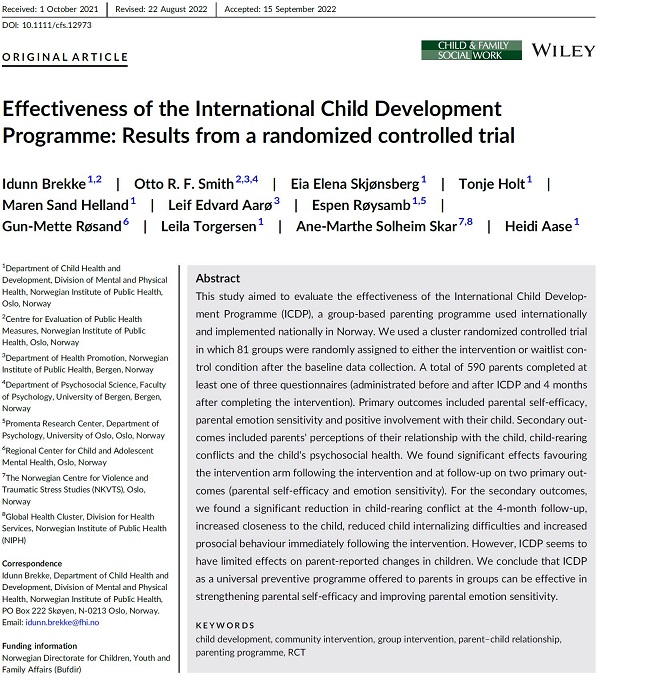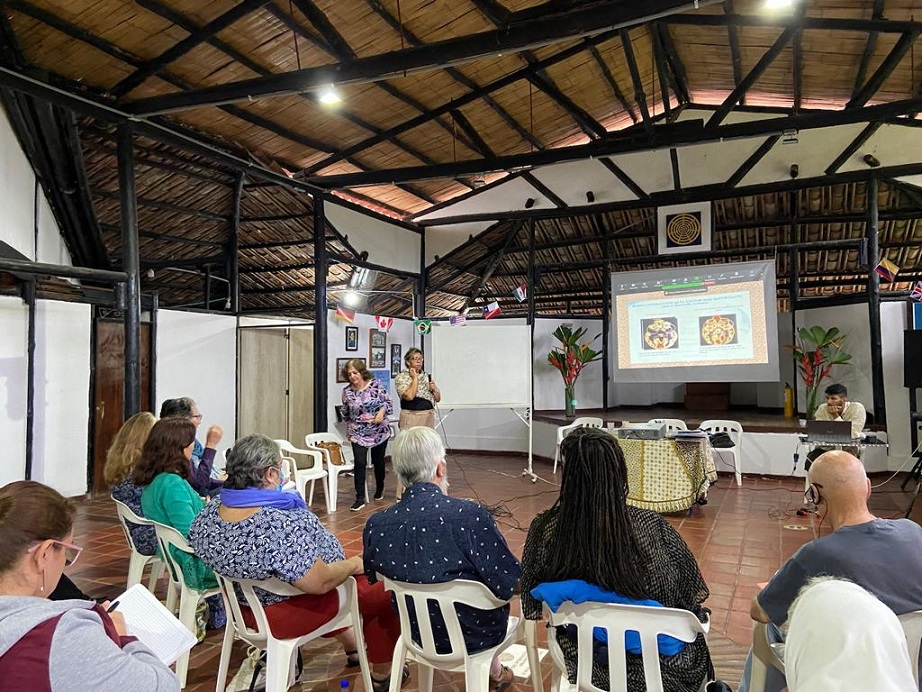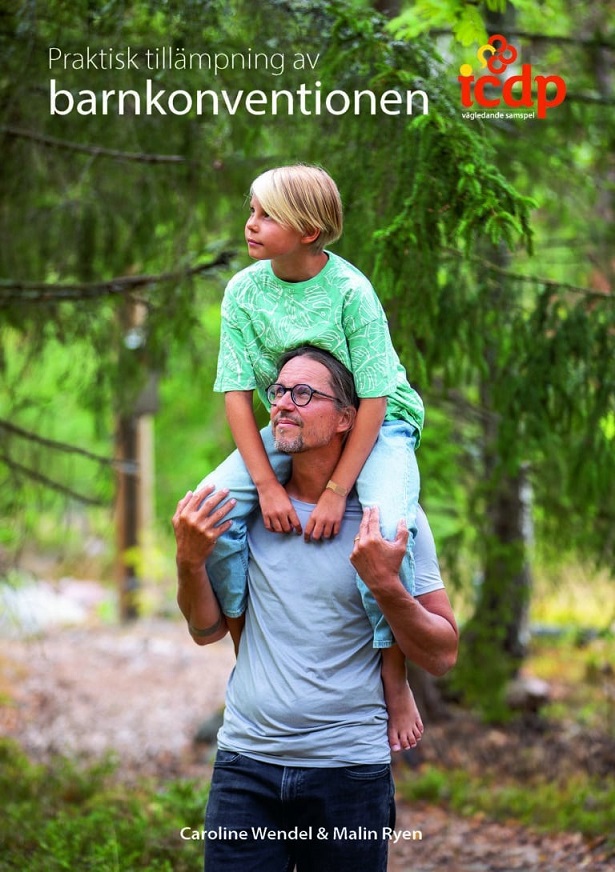On 26th of October 2022, Zenona Gread, the Programme Coordinator for Save the Children, at the Eastern Visayas Program Office, shared the following testimonial written by Ms. Cleo Cairo, from Alang-alang municipality, Leyte, who recently took part in the ICDP planning and updating workshop. The workshop was part of the process of preparing for scaling up ICDP in Region 8.
On my ICDP Parenting Module Facilitators’ Training Experience with Save the Children in the Philippines
I have always been an intuitive person. The emotional intuitive part of me far outweighs the rational ones, reasons why I always take things, people, experiences, dreams deeply; reasons why it is difficult for me to sometimes let go of these things which are better left behind or forgotten. This facet in my personality has its own advantages, like it makes my feet firmly planted on the ground at all times. It has also afforded me positive change for the better – from being fiery sometimes to being more reflective and sober.
In March 2021, I was fortunate to be invited to attend and participate in the Save the Children’s Facilitators’ Training on the ICDP Parenting Module. I was mesmerized by the learning experience that I had in the training. I could not help but reminisce my own childhood.
Very little is indeed known about children’s views of their parents. Not only are Filipino parents regarded as disciplinarian, strict and controlling, they are the lost tribe in the family circle as most are absent owing to the immense economic and social responsibilities in and outside the home. Studies have shown that parents’ absence and lack of parental skills has a negative effect on the development of children, especially as children rely on them for strength, sense of security, practical wisdom and identity. Certain dysfunctions that are observed among youth and adults could be attributed to the absence of parental empathy and involvement in children’s early development. Economic problems faced by families have pushed parents to focus on earning livelihoods to support the family financially. When children are still small and in their growing years, parents usually take this opportunity to move on in their careers, business or just plain earning efforts to provide for the simple needs of their family. As children grow and advance in years, the family is also faced with more challenges and greater demands. Such situation propels parents to exert more efforts to earn more and to grab other opportunities that will increase their capacity to meet the growing demands of the family. Such circumstances result in more absences of parents in the growing, foundational years of children. They are born into the dawn of day with only the presence of women relatives, they develop and grow with rare bonding moments with parents and they become young adults with only their shadows as fond memories.
The ICDP experience was a pivotal shift in my life. The learnings and insights that I gained have opened my eyes to my shortcomings, my weaknesses and inherent flaws. The need for both parents to be present in firming up their children’s identities and character is quite true. When mothers become the shock absorbers of their children, the father becomes their source of strength and security. Their challenging roles come to the fore and it is when they become evident in their children’s lives. Parents are relied upon to be consultants on the more complex problems of life – to be a listening ear, a shoulder to lean on and an understanding heart. They are God’s gift to children. They perform different roles to make the life of their children better. They give, they nurture, they take care and they role model. This is why, when parents become absent or apathetic to the needs of their children, the life of children are disrupted. The parenting skills that the ICDP Parenting Module offers are integral part in the development and growing up of children.
The ICDP Parenting Module Training changed me. It gave me a wider view of what life should be as a child advocate, and an inspiration to do better as a positive and better parent to my siblings, nephew, nieces, and cousins. It has also given me a better grasp of life in general. I was able to see the problems and sufferings of children and people my age and how families break their own due to poverty, lack of education, lack of empathic parenting skills, and callousness of parents to the needs of children. It opened my awareness about my own vulnerabilities and how to heal the child in me; it provided me with guidance about how to raise children who later will not have to be healed. Indeed, it is important to respect children, to allow them to be themselves, to empathize when we talk to them, and to apologize when we need to. There are no perfect parents but there are million ways to be a better one.
The DSWD and Save the Children have already considered the important roles of parents in the lives of children and in nation building. I am in awe of their move to scale-up nationwide the ICDP Parenting Module. What a joy if the DILG and our partners in the Local Government Units decided to once more champion Children and one day institutionalize it as a pre-requisite among soon-to-be married couples – added family welfare programs and services that could be designed for them so that in the face of all the work and hardships, parents will always be reminded of their purpose and basic roles in the home and on their children.
Thank you DSWD and Save the Children for this life-changing opportunity – it was one of the greatest things that happened to me in this pandemic. It is true that we have not lived unless we have done something for someone who will never be able to repay us. I am humbled and beyond grateful for making me look within, and enkindling the fire in me to light my path and those of others on how I can contribute to make my world a better place to live in for our Children and become a beacon of light for others.
I am now able to see my own light because of ICDP.
Clay
